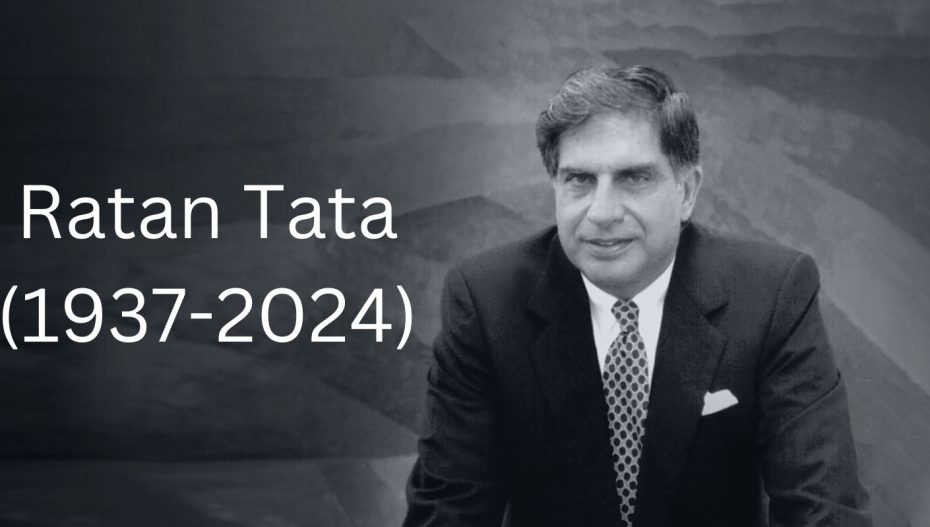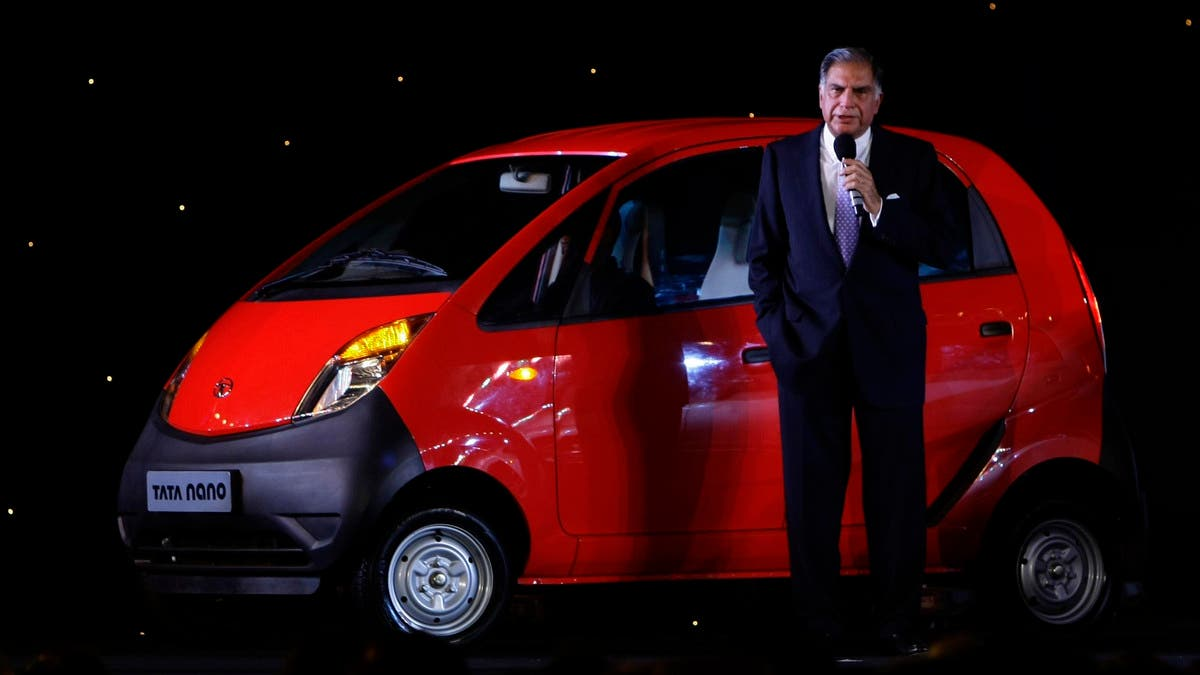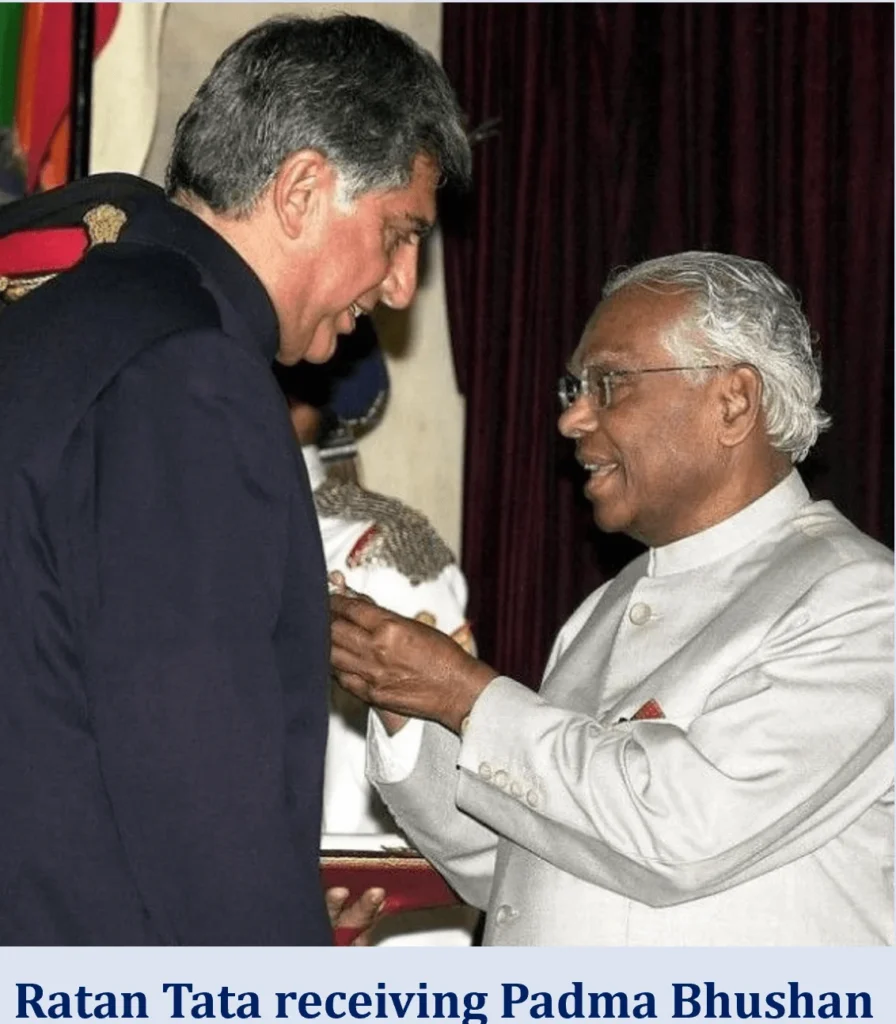India’s most prominent industrialist and philanthropist, Ratan Tata, passed away on Wednesday evening at the age of 86. The chairman emeritus of Tata Sons took his last breath at Mumbai’s Breach Candy Hospital, where he was receiving treatment while being in a critical condition.
“It is with a profound sense of loss that we bid farewell to Mr. Ratan Naval Tata, a truly uncommon leader whose immeasurable contributions habe shaped not only the Tata Group but also the very fabric of our nation, ” stated Tata Sons chairman, N Chandrasekaran.
Earlier this week, the philanthropist reassured the public that his hospital stay was merely for a routine checkup related to his age and health conditions. However, on Wednesday, concerns about his health grew significantly after he was admitted to the hospital’s intensive care unit.
Ratan Tata transformed the Tata Group into a global conglomerate, leaving an indelible mark on the world of business, philanthropy and national progress.
The Rich Past of Well-known Figure
Born into the prestigious Tata family on 28 December 1937, Ratan Naval Tata was raised in Mumbai. He was educated at some of the world’s leading institutions, including Cornell University and Harvard Business School, before joining the Tata Group in 1962.

Taking over as Chairman of Tata Sons in 1991, Ratan Tata spearheaded the modernisation and globalisation of the conglomerate. During his tenure, the Tata Group expanded into international markets with landmark acquisitions such as the purchase of UK-based Tetley Tea, steelmaker Corus and the iconic British automotive brands Jaguar and Land Rover.
He stepped down on December 28, 2012, when he turned 75, appointing Cyrus Mistry as his successor.
At the time Ratan Tata stepped down in 2011-12, the group’s aggregate sales stood at Rs 4.51 trillion, a remarkable 43-fold increase from the turnover in 1992-93 when he first assumed the role of chairman.
Ratan Tata continued to oversee the two primary Tata trusts, the Sir Dorabji Tata Trust and the Sir Ratan Tata Trust, as well as the major holding company, Tata Sons. Collectively, he holds a 66% stake in these entities.
However, relations between Cyrus Mistry and Ratan Tata later deteriorated, leading to Mistry’s removal. N Chandrasekaran, previously in TCS, succeeded as chairman of the Tata Group, a position he continues to hold.
At present, the Tata Group has operations in over 100 countries across sectors such as steel, automobiles, IT, telecommunications and consumer goods.
Tata has never married and has no children. In 2011, Ratan Tata stated, “I came close to getting married four times and each time I backed off in fear or for one reason or another.”
Philanthropy
Despite his corporate success, Ratan Tata was deeply rooted in the philosophy of giving back to society. Under his leadership, the Tata Group remained steadfast in its commitment to philanthropy, with more than two-thirds of Tata Sons’ ownership controlled by charitable trusts. These trusts, under the aegis of the Tata family, have made substantial contributions to education, healthcare and rural development in India.
Tata is a key philanthropist in India, supporting education, medicine, and rural development. They funded the University of New South Wales for water purification research. Tata Hall at UC San Diego, opened in November 2018 with a $70 million donation from Tata Trusts, houses the Tata Institute for Genetics and Society, focusing on biotechnology.
The Tata Education and Development Trust created a $28 million scholarship fund at Cornell University for 20 Indian undergraduates annually. In 2010, Tata Group donated $50 million to build Tata Hall at Harvard Business School, a $100 million executive centre with 180 bedrooms.
The Tata Innovation Center at Cornell Tech serves as a business incubator, with 70% of its space leased commercially. Tata Consultancy Services donated $35 million to Carnegie Mellon University for TCS Hall, a facility for cognitive systems research.
In 2014, Tata Group endowed IIT Bombay with ₹950 million to establish the Tata Center for Technology and Design for resource-limited communities. Tata Trusts granted ₹750 million to IISc for Alzheimer’s research over five years.
The MIT Tata Center of Technology and Design was formed to address challenges in resource-constrained communities, focusing on India.
A Humble and Visionary Leader
Known for his understated demeanour, Ratan Tata never sought the spotlight, despite his monumental achievements. He was widely admired for his humility and the simplicity with which he conducted himself in public and private life. Colleagues, employees and peers consistently spoke of his deep empathy, loyalty and integrity.
Tata was also an early advocate for innovation and sustainability. His passion for automobiles led to the development of the ‘Tata Nano’, a low-cost car aimed at providing affordable transportation to millions of poor and middle-class Indians. While the Nano’s commercial success was limited, it exemplified Tata’s desire to create inclusive and meaningful products.
In addition to his business ventures, Ratan Tata took on advisory roles with several governments and organisations, promoting economic reforms, industrial development and corporate governance in India and beyond.
National and International Recognition
For his contributions to business and society, Ratan Tata was the recipient of numerous national and international accolades. He was awarded the Padma Bhushan in 2000 and the Padma Vibhushan, India’s second-highest civilian honour, in 2008. Internationally, he was recognised with honorary degrees and awards, including an honorary knighthood from the British Crown in 2009. Additionally, 15 institutions from around the world have awarded him with honorary doctorates in various fields of study, ranging from engineering to business management.
In his own words, Ratan Tata once said, “I don’t believe in taking the right decisions, I take decisions and then make them right.” His life exemplified this philosophy—a testament to the power of conviction and resilience.
Ratan Tata’s passing marks the end of an era in Indian business, as he was widely regarded not just for his acumen as a businessman but also for his integrity, humility and deep commitment to social welfare.
















